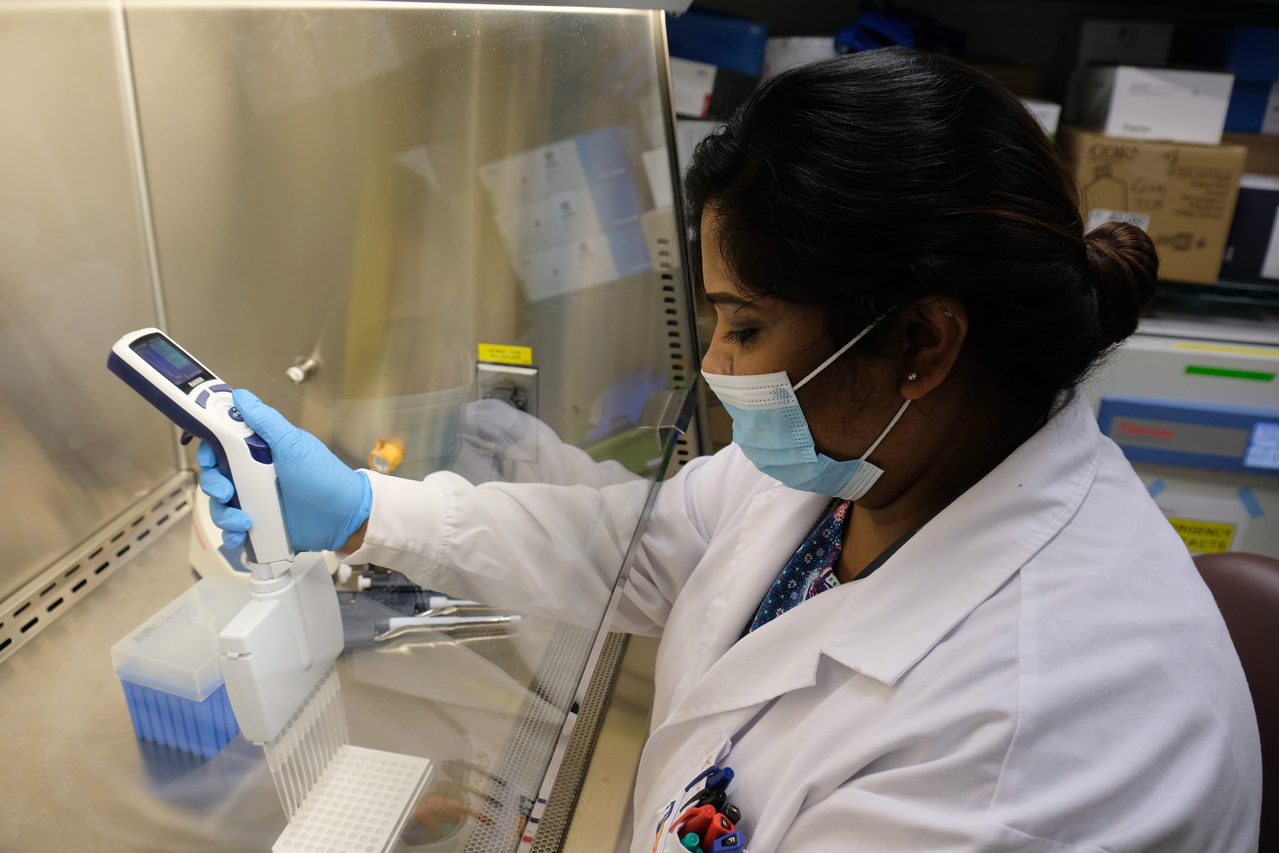S'pore scientists create rapid test to measure T-cells' reaction to Covid-19, boost for vaccine developers
Sign up now: Get ST's newsletters delivered to your inbox

To make T-cells more accessible to researchers, Dr Tan and his team validated a method that can analyse T-cells in less than a day, with less than three hours of work.
PHOTO: DUKE-NUS MEDICAL SCHOOL
SINGAPORE - Scientists in Singapore have optimised a method for a simple, rapid test that will allow vaccine developers to get a more complete picture of how a vaccinated person's immune system will respond to the Sars-CoV-2 virus.
The novel test zeroes in on how T-cells react to the virus that causes Covid-19.
T-cells are white blood cells that are often overlooked compared with its more well-known sibling, antibodies.
Both T-cells and antibodies are jolted awake when viruses enter the body. Antibodies are proteins that can bind to viruses and prevent them from infecting cells.
But when cells are infected, T-cells step in to help clear the infection in the body.
Dr Anthony Tanoto Tan, senior research fellow at Duke-NUS Medical School's Emerging Infectious Diseases (EID) Programme, said: "The T-cell responses to Sars-CoV-2 cannot be accurately predicted by just measuring antibody responses.
"Hence, it is important to measure both parameters to fully evaluate the immune response against the virus in vaccinated and infected individuals."
Dr Tan is the first author of a paper published on Wednesday (Sept 1) in the Journal of Clinical Investigation. The paper outlines how the rapid test works and its outcomes.
Because they are easier to analyse compared with T-cells, scientists are more inclined to measure antibodies.
Dr Tan said the existing, traditional way to analyse T-cells that respond to the virus involves isolating white blood cells.
But this method requires a specialised lab and takes 10 hours of work and 1.5 days to get results.
To make T-cells more accessible to researchers, Dr Tan and his team validated a method that can analyse T-cells in less than a day, with less than three hours of work.
The whole blood sample can be processed without isolating the white blood cells.
"For comparison, one operator can process and analyse approximately five to 10 blood samples in a day with the traditional (method) and get results at the end of the next day.
"With the rapid (method), one operator can comfortably analyse 30 to 50 blood samples in the same amount of time," said Dr Tan.
This rapid test allows researchers to frequently monitor T-cells in vaccinated and infected people and at a larger scale.
Dr Tan added that the test is particularly beneficial for vaccinated people who have compromised antibody responses due to existing diseases or medications.
"In such cases, it would be very important to assess the T-cell response (against the virus) in these individuals to understand if the vaccine could provide protective benefits."
Infectious diseases specialist Leong Hoe Nam - who was not part of the study - said: "With the test, we can better identify those at risk of severe disease and perhaps offer vaccine boosters earlier for them."
For vaccine developers - especially those targeting new and more infectious variants - the test can help to assess T-cell responses awakened by the new Covid-19 vaccines.
To optimise the rapid test, Dr Tan and his team used more than 200 blood samples from both vaccinated and previously infected people, as well as a few people who recovered from severe acute respiratory syndrome (Sars) in 2003.
The team added small fragments of the virus' spike protein into the blood samples to kick-start the various immune responses.
In response to the spike protein, the T-cells released chemical signals called cytokines, which the scientists analysed and measured - to monitor the T-cell quality in each blood sample.
The rapid test for the T-cells is thus called the Cytokine Release Assay.
The Duke-NUS researchers discovered and optimised the test method alongside clinicians from the National Centre for Infectious Diseases and Singapore General Hospital.
Commenting on the test method, Associate Professor Sylvie Alonso, from the National University of Singapore Yong Loo Lin School of Medicine, said it may now be possible to analyse T-cells while routinely monitoring vaccinated people to assess the protective efficacy of vaccines.
Prof Alonso, who is with the Infectious Diseases Translational Research Programme, noted that since the method in the study includes only two types of cytokines, additional cytokines may need to be included in the test to more accurately evaluate T-cell responses after vaccination or infection.
To commercialise the test, Duke-NUS has licensed the method to Hyris, a biotechnology company based in Britain.
Dr Tan and his team are currently studying the mutations of different Sars-CoV-2 variants in detail to understand how they impact T-cell responses.


